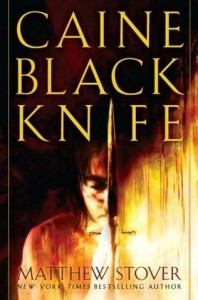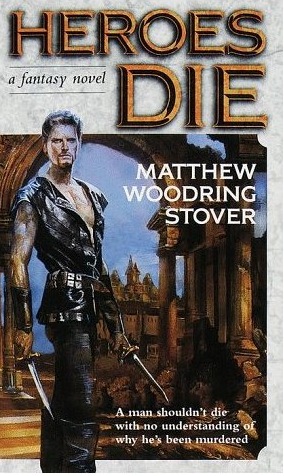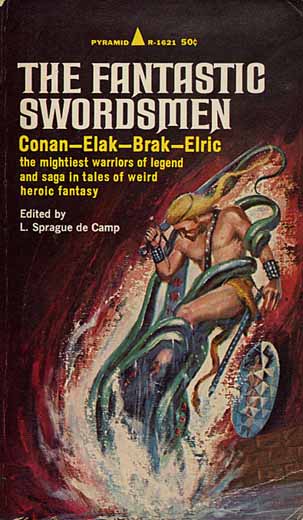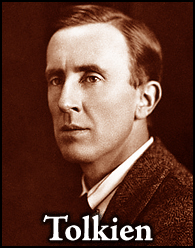Friday, March 27, 2009
posted by Steve Trout

Or Kane. Or Cain. The primordial killer, Caine is back. If you think Howard is grim, Wagner is dark, Adam Colby (whoever the heck that is) is bleak, try Stover, and especially Caine, the reality show for people who can’t stand reality.
Actually, this book has been out since last October, but with all the Howard coming out I haven’t been able to keep up with my other favorites so well as I’d like. Stover has been wasting his time and talent with Star Wars novels so much lately, this one kind of snuck up on me.
The Caine books are that rarity that tries to put science fiction and fantasy into the same story and actually doesn’t come off as lame.
(Continue reading this post)
Saturday, August 16, 2008
posted by Steve Tompkins

In the article I recently posted surveying Sword-and-Sorcery since the Eighties, it was a particular pleasure to push the ornery-in-the-best-sense, refusing-to-consent-to-consensual-reality work of Matthew Stover as hard as I could. Stover’s latest novel will be throwing elbows on bookstore shelves this fall, and over at his blog he’s been musing about how, while the women who enjoy the adventures of Hari Kaine (an assassin as lethally talented at kingdom-decapitating as Gemmell’s Waylander) really, really enjoy them, a certain post-graduate studies quality makes demands that will at least partially exclude some readers:
The real problem with gathering feminine readership for the Acts of Caine, it seems to me, is that [Heroes Die, Stover’s first Caine novel] depends on an SFF-savvy reader — for it to have full effect, the reader should already be well-versed to the point of exhaustion with the various tropes that the story is twisting into less-familiar shapes. Which seems to be more of a guy thing, overall.
Make sure the woman you lend the book to has already read Conan and Bran Mak Morn, Elric and Hawkmoon and Fafhrd & Gray Mouser and the like, and I’m pretty sure she’ll like Caine.
This is a problem with male readership as well. As one editor at Del Rey told me:
“What stops Caine from being more successful is that he’s only accessible to people who are already hardcore fans. Write something ‘entry-level’ — not necessarily Harry Potter, but even more grown-up entry-level like most of Jonathan Carroll or Neil Gaiman, something where someone who knows nothing about SF and fantasy can enjoy it — and you’re golden.”
Unfortunately for me and my career, I’ve never been able to pull something like that together, outside of Star Wars.
(Continue reading this post)
Friday, July 25, 2008
posted by Steve Tompkins
[When Howard Andrew Jones writes about sword-and-sorcery and the desirability of “putting a new edge on an old blade,” it behooves those of us as protective of the subgenre as he is to pay attention, and perhaps pay him the compliment of trying to put our own thoughts in order. To that end, and with a bemused glance at a June 22 post by Gary Romeo, who never loses an opportunity to generalize about Howard purists even if he did lose the chance to celebrate the centennial of his nearest and dearest, I’m rolling out the following article, originally written in 2006 for an anthology that apparently could not be more snake-bitten were it to traipse barefoot through Stygia]
The subgenre of modern fantasy with which Robert E. Howard is nearly synonymous died down in the mid-1980s but did not die out. Far from it; sword-and-sorcery proved to be as difficult to kill as many of its protagonists. But before we can celebrate Howard’s legacy by following the subgenre’s fortunes for the last several decades, we need to establish what we mean by sword-and-sorcery. For starters, what is meant at least for the purposes of this article is an approach to heroic fantasy that became aware of itself when Howard decisively expanded on the promise and premise of Lord Dunsany’s 1908 story “The Fortress Unvanquishable Save for Sacnoth” with “The Shadow Kingdom” in 1929.
The verb “expanded” is chosen with no disrespect whatsoever intended toward Dunsany’s story; it is possible that during his much-debated involvement with sword-and-sorcery, L. Sprague de Camp never did the subgenre more of a favor than when he selected “The Fortress” for his anthology The Fantastic Swordsmen (1967).

(Here, on the other hand, Leo argues that the only place for poor old “Sacnoth” in an S & S muscle car is: the ejector seat)
(Continue reading this post)







